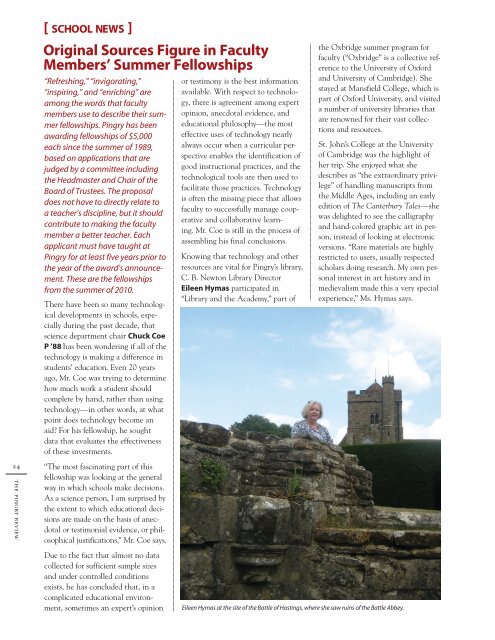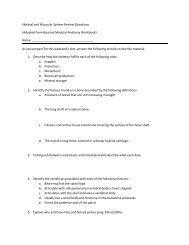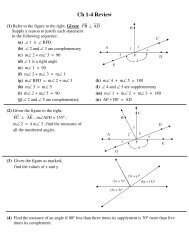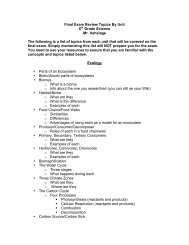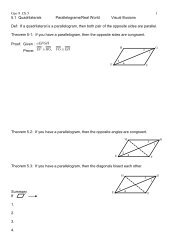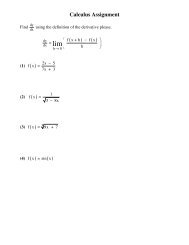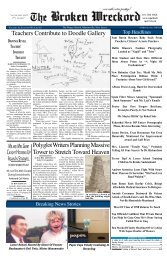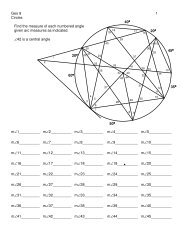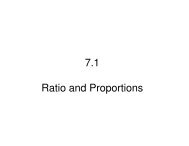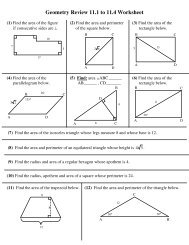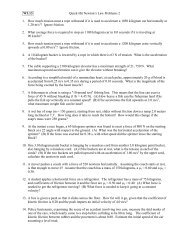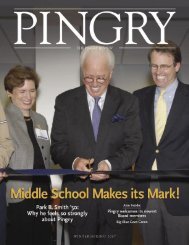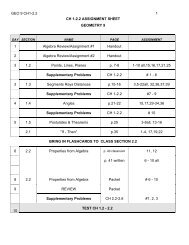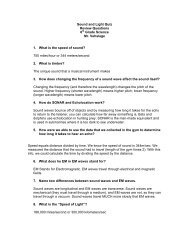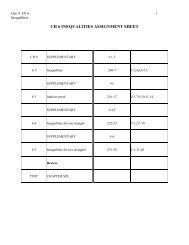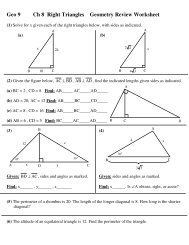Fall/Winter 2010 - Pingry School
Fall/Winter 2010 - Pingry School
Fall/Winter 2010 - Pingry School
You also want an ePaper? Increase the reach of your titles
YUMPU automatically turns print PDFs into web optimized ePapers that Google loves.
[ SCHOOL NEWS ]<br />
Original Sources Figure in Faculty<br />
Members’ Summer Fellowships<br />
“Refreshing,” “invigorating,”<br />
“inspiring,” and “enriching” are<br />
among the words that faculty<br />
members use to describe their summer<br />
fellowships. <strong>Pingry</strong> has been<br />
awarding fellowships of $5,000<br />
each since the summer of 1989,<br />
based on applications that are<br />
judged by a committee including<br />
the Headmaster and Chair of the<br />
Board of Trustees. The proposal<br />
does not have to directly relate to<br />
a teacher’s discipline, but it should<br />
contribute to making the faculty<br />
member a better teacher. Each<br />
applicant must have taught at<br />
<strong>Pingry</strong> for at least five years prior to<br />
the year of the award’s announcement.<br />
These are the fellowships<br />
from the summer of <strong>2010</strong>.<br />
There have been so many technological<br />
developments in schools, especially<br />
during the past decade, that<br />
science department chair Chuck Coe<br />
P ’88 has been wondering if all of the<br />
technology is making a difference in<br />
students’ education. Even 20 years<br />
ago, Mr. Coe was trying to determine<br />
how much work a student should<br />
complete by hand, rather than using<br />
technology—in other words, at what<br />
point does technology become an<br />
aid For his fellowship, he sought<br />
data that evaluates the effectiveness<br />
of these investments.<br />
or testimony is the best information<br />
available. With respect to technology,<br />
there is agreement among expert<br />
opinion, anecdotal evidence, and<br />
educational philosophy—the most<br />
effective uses of technology nearly<br />
always occur when a curricular perspective<br />
enables the identification of<br />
good instructional practices, and the<br />
technological tools are then used to<br />
facilitate those practices. Technology<br />
is often the missing piece that allows<br />
faculty to successfully manage cooperative<br />
and collaborative learning.<br />
Mr. Coe is still in the process of<br />
assembling his final conclusions.<br />
Knowing that technology and other<br />
resources are vital for <strong>Pingry</strong>’s library,<br />
C. B. Newton Library Director<br />
Eileen Hymas participated in<br />
“Library and the Academy,” part of<br />
the Oxbridge summer program for<br />
faculty (“Oxbridge” is a collective reference<br />
to the University of Oxford<br />
and University of Cambridge). She<br />
stayed at Mansfield College, which is<br />
part of Oxford University, and visited<br />
a number of university libraries that<br />
are renowned for their vast collections<br />
and resources.<br />
St. John’s College at the University<br />
of Cambridge was the highlight of<br />
her trip. She enjoyed what she<br />
describes as “the extraordinary privilege”<br />
of handling manuscripts from<br />
the Middle Ages, including an early<br />
edition of The Canterbury Tales—she<br />
was delighted to see the calligraphy<br />
and hand-colored graphic art in person,<br />
instead of looking at electronic<br />
versions. “Rare materials are highly<br />
restricted to users, usually respected<br />
scholars doing research. My own personal<br />
interest in art history and in<br />
medievalism made this a very special<br />
experience,” Ms. Hymas says.<br />
24<br />
the pingry review<br />
“The most fascinating part of this<br />
fellowship was looking at the general<br />
way in which schools make decisions.<br />
As a science person, I am surprised by<br />
the extent to which educational decisions<br />
are made on the basis of anecdotal<br />
or testimonial evidence, or philosophical<br />
justifications,” Mr. Coe says.<br />
Due to the fact that almost no data<br />
collected for sufficient sample sizes<br />
and under controlled conditions<br />
exists, he has concluded that, in a<br />
complicated educational environment,<br />
sometimes an expert’s opinion<br />
Eileen Hymas at the site of the Battle of Hastings, where she saw ruins of the Battle Abbey.


